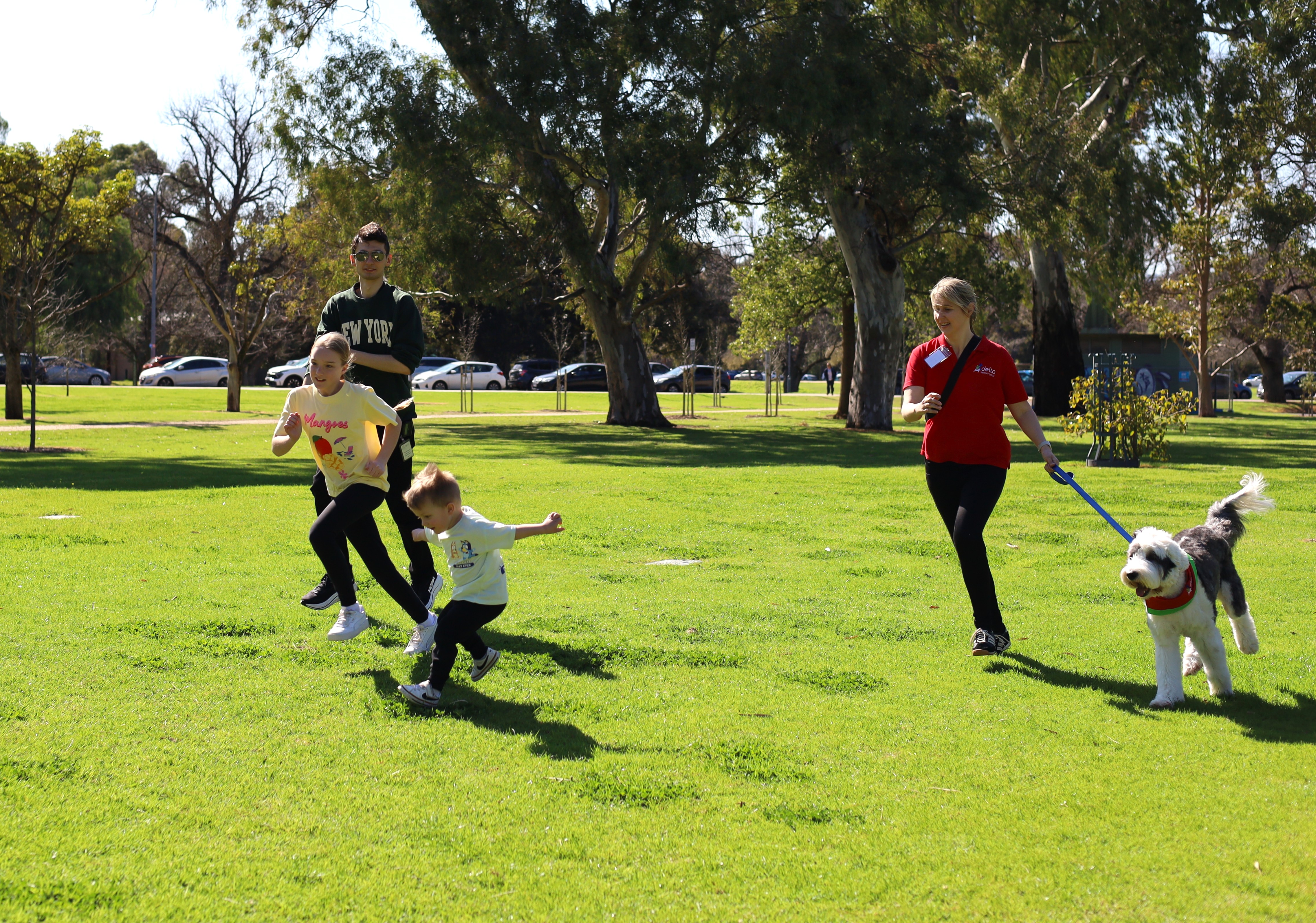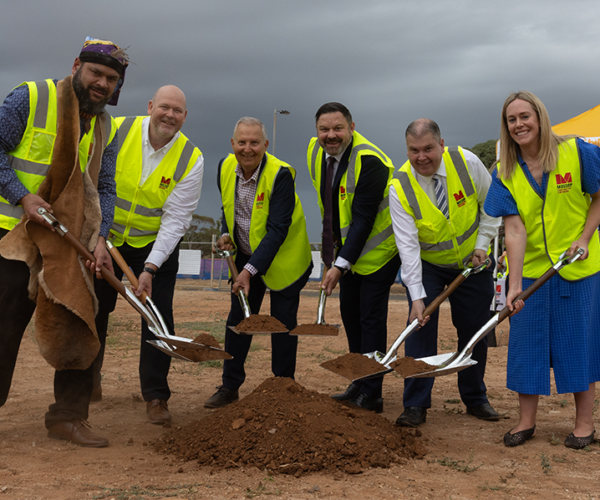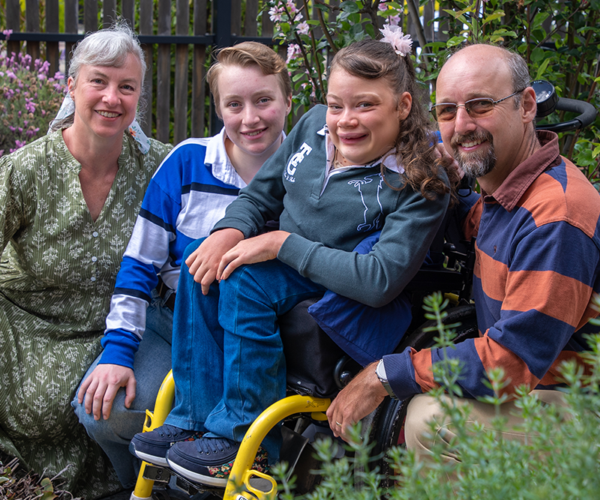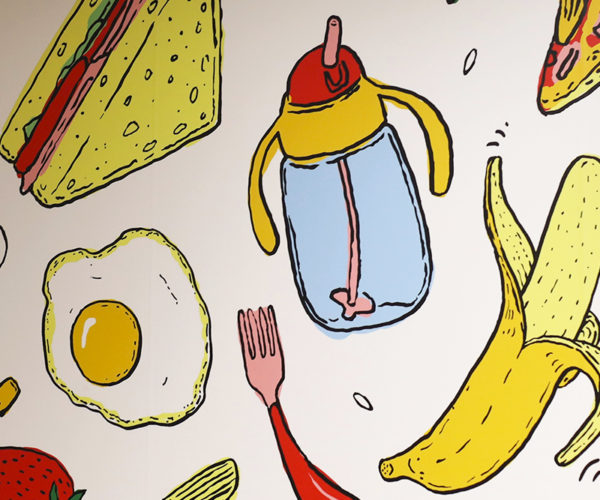Just over a month ago, three-year-old Clive’s life changed in an instant. After contracting influenza B with no initial symptoms, he deteriorated rapidly. In the span of half an hour, Clive began having seizures and by the time he had arrived at the Women’s and Children’s Hospital, he had lost consciousness.
Within 36 hours, Clive was diagnosed with Acute Necrotizing Encephalopathy, a rare and severe inflammation of the brain. He couldn’t walk, talk, or sit up, and spent nearly a week in the Paediatric Intensive Care Unit.
“When Clive first woke up, he couldn’t communicate or sit up,” says his mum, Monique. “He was just lying on his side in his bed.”
But slowly, progress came. Over the following weeks, Clive began crawling and now in the last week he has been running around and chatting again.
For Monique, it’s been nothing short of incredible. “We didn’t think Clive would ever walk or talk again. To see him now, smiling and running, it’s huge.”
One of the biggest surprises in Clive’s recovery has been the role of the Dog Therapy program.
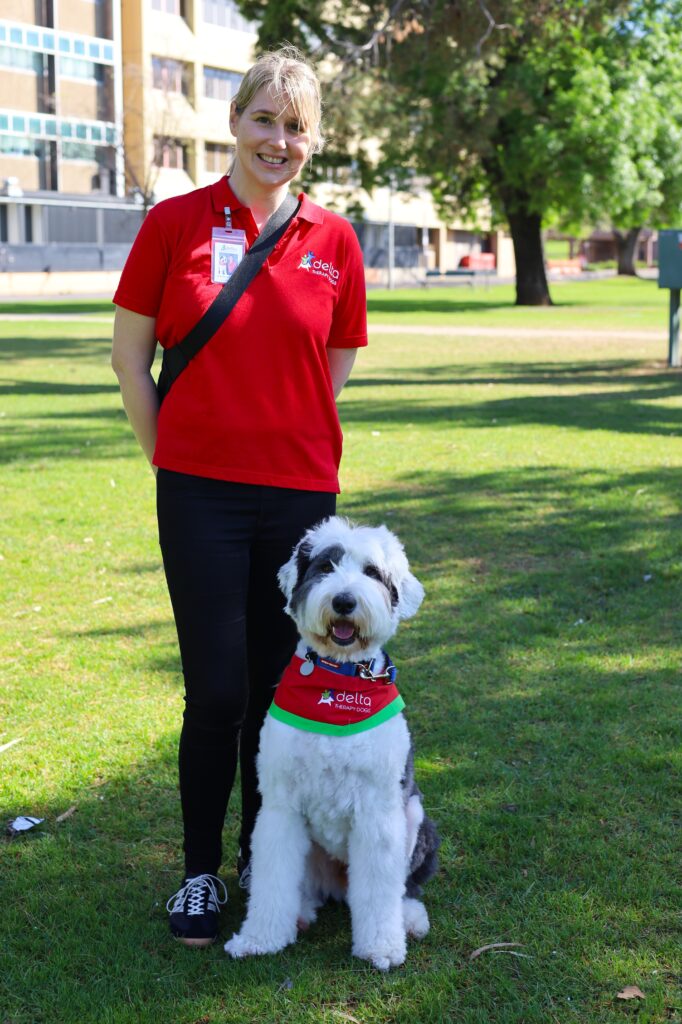
“Clive loves the therapy dogs. Every week he looks at the roster and asks me, ‘How many sleeps until my dog comes?’” Monique says with a smile. “The moment they walk in, his whole face lights up. He’ll play games, hide treats, and start walking around without even realising he’s doing therapy. It changes everything.”
The Dog Therapy program at the Women’s and Children’s Hospital has been running since 2016, sponsored by the WCH Foundation and delivered in partnership with Delta Therapy Dogs. Beyond cuddles and smiles, research shows animal assisted therapy reduces stress and anxiety, improves communication, boosts mental health, and can even speed up recovery times.
With over 100 sessions delivered each year across Paediatric Rehabilitation, Newland Ward, and Mallee Ward, the program has become a vital part of care at the Women’s and Children’s Hospital.
For families like Monique’s, the benefits are impossible to measure.
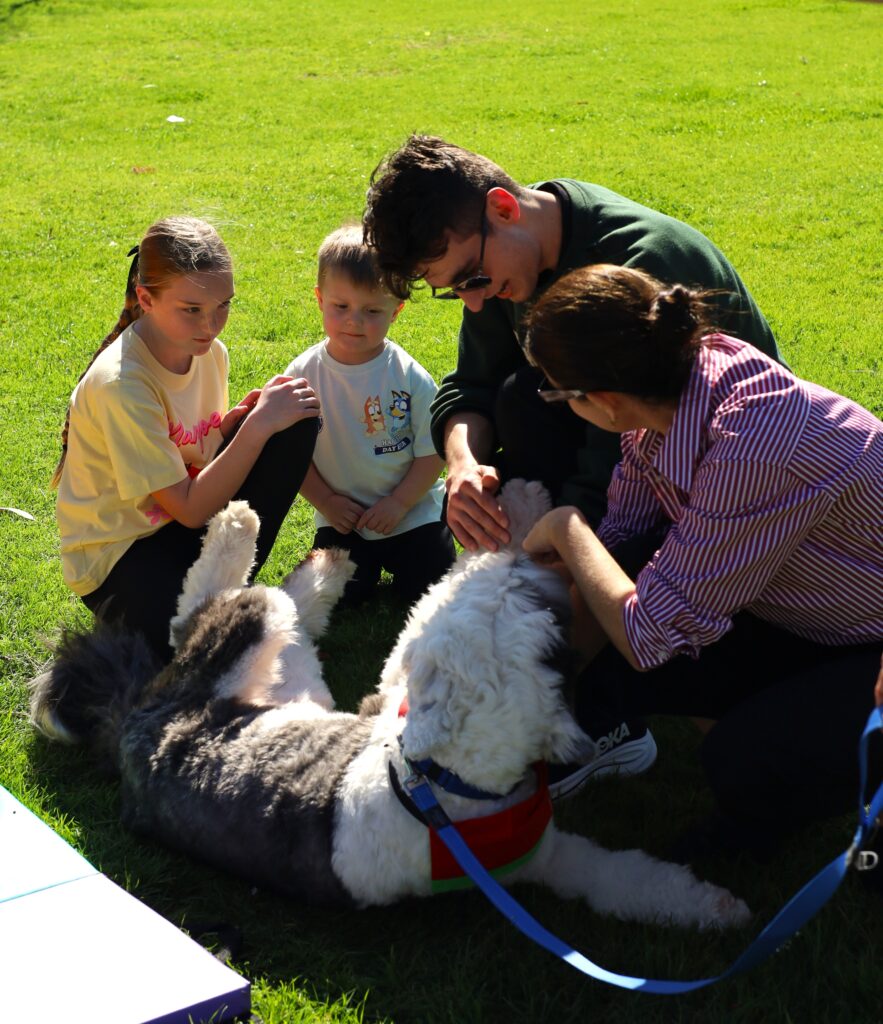
“Some days it would take me half an hour just to get Clive out of his pram,” she says. “But if he knows the dogs are coming, he’s straight up.”
Today, Clive’s recovery continues with intensive rehab, but the joy on his face is proof of just how far he’s come. “There’s hope now,” Monique says.

